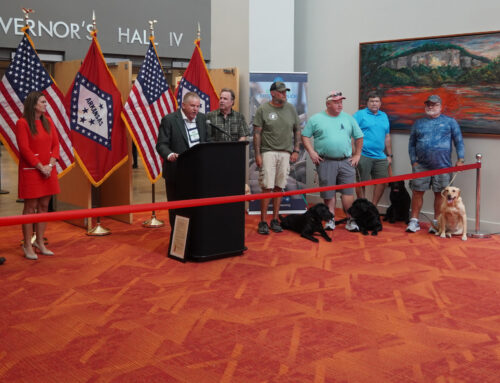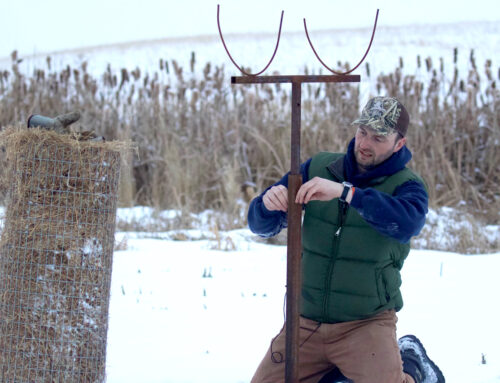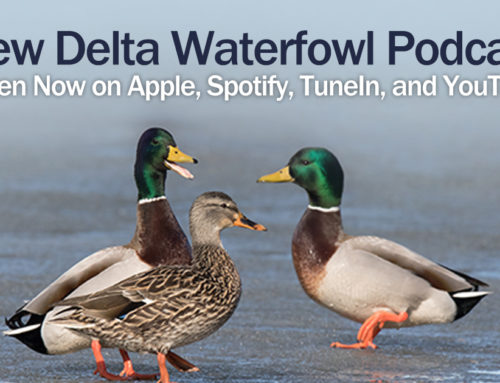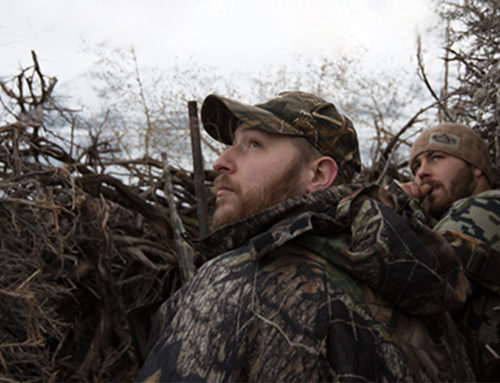Delta Waterfowl’s University Hunting Program Expands to 39 Higher-Ed Institutions

Effort ensures tomorrow’s wildlife management leaders understand hunting’s role in conservation
BISMARCK, NORTH DAKOTA — A decade ago, Delta Waterfowl recognized a startling reality: Though in past generations, people who desired to become wildlife management professionals were typically raised in families that hunted, today up to 70 percent of wildlife management students have no hunting background.
“That’s a problem,” said Jacob Bushaw, HunteR3 coordinator for Delta Waterfowl. “Without an understanding of the important role sportsmen and women play in conservation, these future biologists and decision makers — many of whom will use hunting license and permit revenues to manage waterfowl — might make ill-informed choices about ducks and duck hunting.”
Delta’s innovative University Hunting Program is proving the solution. Introduced in 2017 at five partner universities, the program grew to 24 schools by 2019 and a whopping 39 for the current waterfowl season. Those numbers greatly exceed the program’s forecasted rate of expansion, which ultimately calls for it to be offered at all 494 North American schools with wildlife management programs.
“We’ve recently added UHP programming at such schools as Cornell, Penn State and Alabama A&M, while maintaining the curriculum at Clemson, Colorado State and other major wildlife institutions,” Bushaw said. “Thanks to a generous grant from the U.S. Fish and Wildlife Service, we hope to offer the program to a minimum of 50 schools in 2022.”
College professors are drawn to UHP, as most recognize its merits and because Delta Waterfowl provides the lion’s share of the work — from the coursework to the clothing, shotguns and Boss Shotshell-sponsored ammo. The bigger surprise: the level of interest from non-hunting and even anti-hunting students.
“We hosted 10 Utah State students for a successful hunt last weekend and, believe it or not, three were vegans,” Bushaw said. “The diversity of the students in terms of their backgrounds and motivations to participate in UHP is mind-blowing. A majority want to learn about hunting’s role in conservation and what it’s all about. Some have wanted to hunt but never had the opportunity. And others want to broaden their horizons or learn about what they feel is a more ethical way to put meat on the table.”
This season, upwards of 300 students will participate in Delta’s University Hunting Program. Based on their continued feedback, that number is expected to continue to grow.
“I grew up in a suburban family that has an intense hatred of hunting and guns, and my entire life I have been working to be able to hunt,” said wildlife student Olivia O’Hara, who attended a UHP event on Nov. 6. “(My UHP) hunt was the best experience ever. I had the first shot and first bird on the ground that morning. We were then taught how to cook and clean the birds, and even some of the offals, like the heart. I can’t even express how happy I am.”
Certainly UHP is educating new, upcoming wildlife classes about their future, primary stakeholders — that is, hunters. And the program has far exceeded its additional goal: hunter recruitment. A remarkable 70 percent of student participants have continued as license-buying hunters.
“That’s a pretty incredible stat,” Bushaw said. “It speaks to the effectiveness of Delta’s University Hunting Program, and it’s terrific that we’re making hunters. On a personal level, it’s so rewarding to see a new waterfowler’s eyes light up when that first flock of mallards cups its wings.”
For more information, contact Jacob Bushaw at (701) 426-5778 or jbushaw@deltawaterfowl.org.
Delta Waterfowl Foundation is The Duck Hunters Organization, a leading conservation group working to produce ducks and ensure the tradition of duck hunting in North America. Visit deltawaterfowl.org.





Leave A Comment